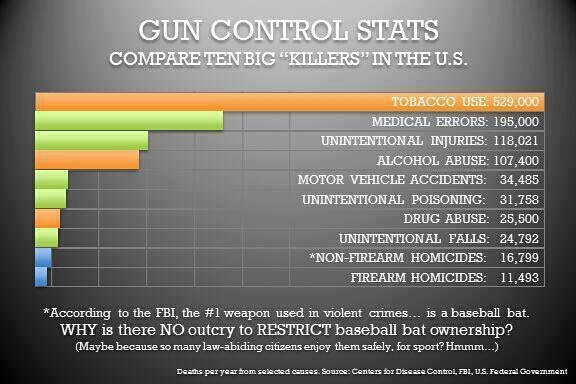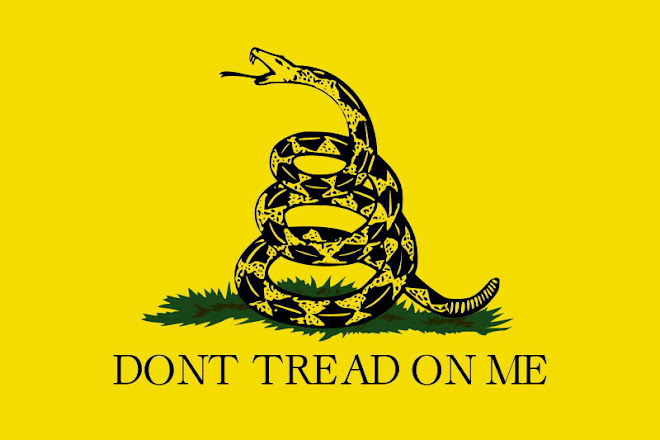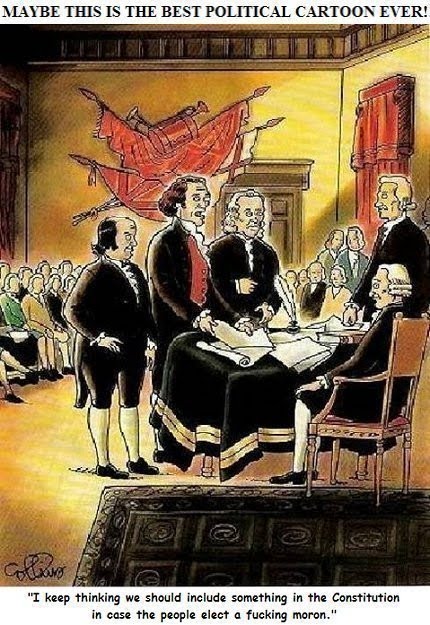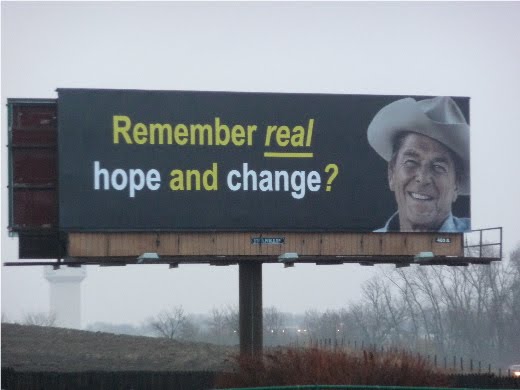'2016: Obama's America' to Screen at Churches Before DVD Release
10/12/2012 by Paul Bond
In possible defiance of an IRS code, churches are licensing a movie critical of Obama and showing it to their congregants.
A hit documentary film challenging President Obama will be screened in tax-exempt churches, whether the IRS likes it or not.
2016: Obama’s America, which takes a critical look at the president and includes an interview with his half brother in Africa, has already grossed a strong $33.5 million at the box office. Now those behind 2016 are creating a new distribution window, if you will: Licensing the movie to churches at the tail end of its theatrical run and before it hits DVD or VOD.
A handful of churches already have signed on before the filmmakers even started to market the initiative. One of them, the influential mega-church Calvary Chapel Costa Mesa, licensed the film for $299 and will show it to an expected 500 congregants Saturday, and Calvary Chapel Downey did likewise for the following Saturday. Neither church responded to an interview request from The Hollywood Reporter.
But will the screenings violate U.S. tax rules?
According the IRS code, 501(c)(3) organizations, including churches, are restricted from electioneering, which includes actively supporting or opposing one presidential candidate over another. But organizations have been known to challenge such boundaries. Conservatives, for example, routinely question whether the self-described “progressive” organization Media Matters for America is deserving of its tax-exempt status.
The law is murky, too, as applied to churches. Pastors are allowed to endorse candidates on a personal level and even lend their names to candidates for use in political ads, as long as the church is left out of the equation. This week, for example, the Rev. Billy Graham met with Republican presidential candidate Mitt Romney and told him that he would do “all I can” to help him win, and Graham had no problem with the campaign dstributing photos of the meeting and speaking to reporters about the de facto endorsement.
Some conservative churches want the same partisan privileges that individuals such as Graham enjoy, so they have been purposely flaunting the law, arguing that liberal-oriented churches get away with partisan behavior all the time. One popular refrain, for example, is that the Rev. Jeremiah Wright and Trinity United Church of Christ in Chicago were firmly behind Obama’s presidential run in 2008, so why should any church be prevented from supporting Romney in 2012?
Last Sunday, hundreds of conservative preachers across the country participated in Pulpit Freedom Sunday, an event staged once a year since 2008 whereby church leaders endorse political candidates and positions. Organized by Alliance Defending Freedom, its goal is to force a response from the IRS so that the issue can be resolved in a court of law, said the group’s senior legal counsel Erik Stanley.
“The 58-year-old Johnson Amendment in the tax code -- which is what the IRS uses to restrict what pastors can and cannot say from the pulpit — is unconstitutional,” Stanley said.
Naturally, some liberals disagree. Two days ahead of Pulpit Freedom Sunday, Brendan Kiley, who has written for Newsweek and the Forward, wrote at TheStranger.com that "over a thousand American preachers are going to strike a craven blow against the separation of church and state and doll it up as if they're doing liberty and the First Amendment a favor."
Dinesh d’Souza, the star and co-director of 2016, told The Hollywood Reporter that churches should not fear the IRS if they screen his movie.
“The last time I checked we still live in a free country,” he said. “My film takes no partisan sides – I don’t urge a vote for or against Obama – I just want people to think and make an informed decision. This film is well within the limits of protected free speech in a church setting.”
While some legal scholars agree with those sentiments, current law may not be on the side of churches that license 2016, Stanley said.
"If a church wants to speak out about candidates in that way, [church leaders] should have the right to do so, but current IRS regulations say that they don't," said Stanley.
Stanley said that few churches are ever challenged by the IRS over politics and that when they are, the churches tend to back down. If they fight, the IRS might drag the church through an audit, tell it to stop its partisanship then close the case without further legal action.
"They send a letter saying, 'You vioated the law and don't do it again but we're closing our file.' So no court anywhere has ever had the opportunity to decide if it's constitiutional to censor a pastor," Stanley said.
.
skip to main |
skip to sidebar

And tell your friends too!!!

Obama was an Alinsky trainer at ACORN
WRD began in January 2010 at the height of the Obamacare debacle. Since then, WRD banded with a group of like-minded individuals to form the Gadsden Group, influencing thought by challenging bias at the Milwaukee Journal Sentinel, volunteering for Republican candidates, participating in numerous campaign events, networking with other groups of concerned citizens, and gaining a foothold in social media on Twitter. Our "Letter to to the Left" after Governor Walker's convincing win in the June 2012 recall election went viral, and we decided to officially expand this site to include the Gadsden Group name.
We hope this site will be a one-stop shop for great websites, articles, polls, conservative commentary, and more. 2010 was the year of the Republican comeback, and 2012 was off to a great start with the convincing win of Scott Walker, but we have much work to do after the Romney and Thompson defeats, and it's up to all of us to make it happen. Share with friends, convince your kids, do your part to get our great country back! Thanks for visiting our site! Wisconsin Republican Dad and everyone in the Gadsden Group



"I also am a total loser"

3 victories in 4 year, this is uncharted water. Take that you lefties!!!!

wish I had thought of this one!



Send your donation to the Trotsky/Alinsky Center for the Insane


Thanks NSA!



Yuck!






One of the worst things I've ever seen on social media, and that's saying something. Disgusting.

What's the penalty for treason again?






"I go skeetshooting all the time" LOL







Benghazi-Gate is the end of O's political career whether he wins re-election or not. Let's make it not.


"Thanks for ruining our 20th anniversary meanie!"



Dear Leader violates the Flag Code. He should be arrested for putting his image on the flag while being a sitting POTUS. People have died for our Flag. These $35 flags from obama.com are a National disgrace.


Try putting this one on your Dane County SUV!!!

Those guys are working overtime over there

What kind of a vile, despicable person drives this car? (A Hyundai in Detroit as well)


This Massachusetts billboard gets it right!

Thank you Clint Eastwood for the Empty Chair!!! Great stuff!

The day the people were forced to take back their country


Romney for 8, Ryan for 8, Walker for 8, Rubio for 8. Then we die old & happy.



The Wisconsin Boys welcome the next POTUS to WI, the state that saved a country!

What could possibly get between you and your doctor?

Your kids all thank you!





The 1770's flag has made a huge comeback, and for good reason...



"he even writes lefty"

Another great campaign slogan: "Transparency!"

Those marketing folks are working overtime over there...

Please stay in the right lane...

Don't let the Takers defeat the Makers: Defeat Obummer in 2012

I'm kinda diggin' the new slogan: transparency finally?

The Democracy will ceast to exist when you take away from those who are willing to work and give to those who would not.
--Thomas Jefferson

"available at fine clothiers and wherever English is Spoken"

"Republicans believe every day is the 4th of July, Democrats believe every day is April 15th."

Close your eyes...breathe deeply...imagine...

"Thomas, I really think we ought to include this???"

"or what lefties refer to as, those pesky little first 10 amendments that prevent us from stomping on the great unwashed"

Ronaldus Magnus, on a billboard in the Twin Cities
Media Trackers
MacIver Institute
Wisconsin Republican Dad's favorite links
- Breitbart
- American Thinker
- Americans For Prosperity
- Bernie Goldberg
- Bill O'Reilly
- Citizens for Responsible Government
- Dick Morris
- Drudge Report
- Fox News
- Freedom Works
- Grandsons of Liberty (WI)
- Heritage Foundation
- Hot Air
- Learn the Truth About Obama's Past
- Mark Belling
- Mark Levin
- Michelle Malkin
- Milwaukee Journal Sentinel
- National Review
- Paul Ryan
- Politico
- Real Clear Politics
- Red State
- Right Wisconsin
- Ron Johnson
- Scott Walker
- The Daily Caller
- Track liberal bias at the New York Times
- USA Today
- Vicki McKenna
- WISN Common Sense Central
- Where the lefties hang out
- Young America's Foundation
Follow us on Twitter @Gadsden_Group

And tell your friends too!!!
If you understand Alinsky, you understand Leftists

Obama was an Alinsky trainer at ACORN
Welcome to our blog!
WRD began in January 2010 at the height of the Obamacare debacle. Since then, WRD banded with a group of like-minded individuals to form the Gadsden Group, influencing thought by challenging bias at the Milwaukee Journal Sentinel, volunteering for Republican candidates, participating in numerous campaign events, networking with other groups of concerned citizens, and gaining a foothold in social media on Twitter. Our "Letter to to the Left" after Governor Walker's convincing win in the June 2012 recall election went viral, and we decided to officially expand this site to include the Gadsden Group name.
We hope this site will be a one-stop shop for great websites, articles, polls, conservative commentary, and more. 2010 was the year of the Republican comeback, and 2012 was off to a great start with the convincing win of Scott Walker, but we have much work to do after the Romney and Thompson defeats, and it's up to all of us to make it happen. Share with friends, convince your kids, do your part to get our great country back! Thanks for visiting our site! Wisconsin Republican Dad and everyone in the Gadsden Group
Total Pageviews
Blog Archive
About Us

- Wisconsin Republican Dad
- WRD: I'm just a dad and husband who's very worried about the direction this country is going, and decided it was time I got involved. I believe in fiscal restraint, personal responsibility, a much smaller goverment, fewer government programs, agencies, and entitlements, strong national defense, and justice for criminals. I want our borders strengthened, tort reform, a balanced budget, and deficit reduction. I believe in Constructionist judges, not liberals who legislate from the bench. I'm pro gun, I'm for expanding nuclear power and offshore drilling. By default, that makes me a conservative Republican. The liberals are killing this country, and worse, they know it. Their desire to be liked, to be seen as champions of the poor, while they continue to grow the welfare state, bothers me greatly. Because arrogance is the worst of human traits, their condescension (that means you Russ Feingold) towards middle America makes me want to scream. So I am... Gadsden Group: We are a group of like-minded individuals based in Waukesha and Milwaukee counties (WI). We're sick of liberals running our state into the ground, so we decided to make a stand. So far, so good...
Very, very true...

Liberal tears....

"I also am a total loser"
We won! Again!!!

3 victories in 4 year, this is uncharted water. Take that you lefties!!!!
This says it all perfectly

wish I had thought of this one!
Leftists...

Differences

Please, can you help us find a cure?

Send your donation to the Trotsky/Alinsky Center for the Insane
The official definition of liberal

Obama's Desktop

Thanks NSA!
Sounds about right...

Sounds about Right

Please, no more desecration of the White House from these Hippies

Yuck!
Perhaps the best t-shirt evah!

2A

Here's one man who can save our counrty

That liberal lion, John F. Kennedy

Welcome to Wisconsin

The sick freak polymath22 posted this fake image of murdered Martin Richard

One of the worst things I've ever seen on social media, and that's saying something. Disgusting.
TRAITORS! TREASON!!!

What's the penalty for treason again?

What we're up against, #5,678,890




Our Idiot in Chief using his Prompter

"I go skeetshooting all the time" LOL
"What Difference Does it Make?"



Ronald Reagan (deceased) summarizes the Newtown killings
"We must reject the idea that every time a law's broken, society is guilty rather than the lawbreaker." -
--Ronald Reagan
--Ronald Reagan
And it begins...God Help us

Watching Americans die in Benghazi, and not assisting, leads to:

What have we done...

Oct. 25th, 2012 cover, New York Post

Benghazi-Gate is the end of O's political career whether he wins re-election or not. Let's make it not.
Words spoken were never truer...and he said them!!!

If looks could kill...

"Thanks for ruining our 20th anniversary meanie!"
DEFICIT!

Obamanation

This flag desecrator must be stopped NOW!!!

Dear Leader violates the Flag Code. He should be arrested for putting his image on the flag while being a sitting POTUS. People have died for our Flag. These $35 flags from obama.com are a National disgrace.

Now that's funny!

Try putting this one on your Dane County SUV!!!
The New Obama Slogan

Those guys are working overtime over there
My buddy Al G. from near Detroit took this photo...

What kind of a vile, despicable person drives this car? (A Hyundai in Detroit as well)

Thank goodness we're all computer-savvy!

This Massachusetts billboard gets it right!
The best empty chair photo I've seen so far!

Thank you Clint Eastwood for the Empty Chair!!! Great stuff!
June 28, 2012

The day the people were forced to take back their country
I don't care who you are, that's funny!

The great Paul Ryan

Romney for 8, Ryan for 8, Walker for 8, Rubio for 8. Then we die old & happy.

This is perfect for Andrea Mitchell, since she already is a dog!

June 18, 2012

The Wisconsin Boys welcome the next POTUS to WI, the state that saved a country!
Obamacare

What could possibly get between you and your doctor?
Quote that pretty much says it all
"As an American, I am not so shocked that Obama was given the Nobel Peace Prize without any accomplishments to his name, but that America gave him the White House based on the same credentials." --Newt Gingrich
Congratulations to all the 54% ers!

Your kids all thank you!

Got it Leftists? Understand? I didn't think so...




The 1770's flag has made a huge comeback, and for good reason...
"Here's to hoping this isn't your kids' teacher"


Obama's New Bill of Rights

"he even writes lefty"
Obama Marketing team is hard at it!

Another great campaign slogan: "Transparency!"
New campaign slogan for the Obummer juggernaut

Those marketing folks are working overtime over there...
Let's drive a little more carefully this time, OK?

Please stay in the right lane...

Don't let the Takers defeat the Makers: Defeat Obummer in 2012

I'm kinda diggin' the new slogan: transparency finally?

Thomas Jefferson, not exactly a fan of the welfare (ie. liberal) state
The Democracy will ceast to exist when you take away from those who are willing to work and give to those who would not.
--Thomas Jefferson
Scott Walker's Phone # if needed
Governor Walker's office # is 608-266-1212. Please feel free to call him and thank him for everything he has done, if you have questions, anything at all. This is what transparency looks like!!!!
Dads Against Daughters Dating Democrats

"available at fine clothiers and wherever English is Spoken"
Ronald Reagan

"Republicans believe every day is the 4th of July, Democrats believe every day is April 15th."
www.thoseshirts.com

Close your eyes...breathe deeply...imagine...
A clause that didn't make the final draft

"Thomas, I really think we ought to include this???"
The Bill of Rights

"or what lefties refer to as, those pesky little first 10 amendments that prevent us from stomping on the great unwashed"
I wonder what he's thinking now???

Ronaldus Magnus, on a billboard in the Twin Cities